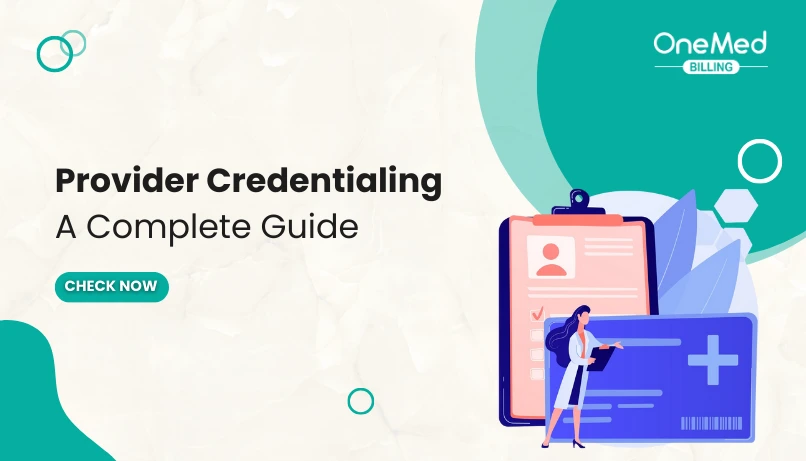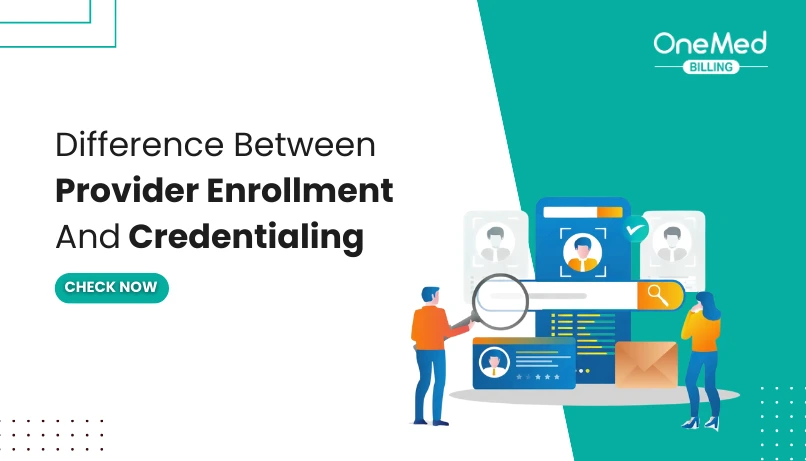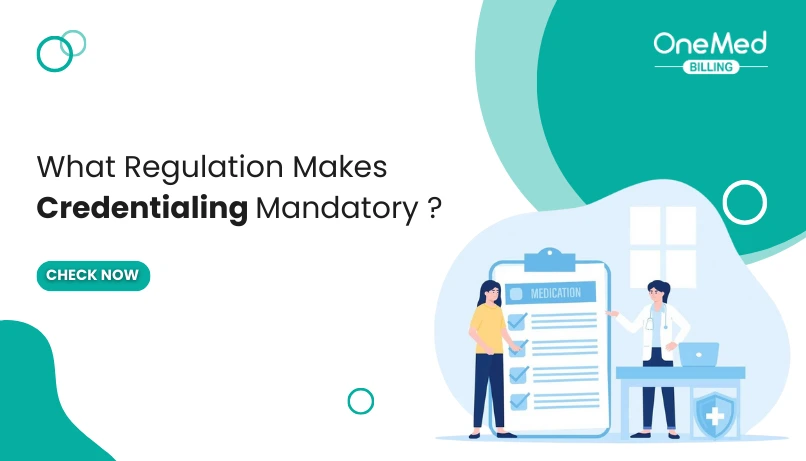What Regulation Makes Credentialing Mandatory?
- Updated Date Sep 23, 2025
- Provider Credentialing
- Follow
No single federal law makes credentialing mandatory for all medical assistants, but multiple regulations make it functionally required. These include 2 CFR § 422.204, which mandates credentialing for staff under Medicare Advantage plans, CMS Conditions of Participation requiring qualified personnel, CLIA lab testing rules, OSHA safety standards, and state-specific laws like Washington’s RCW 18.360 and Arizona’s ARS § 32-1456. Accreditation bodies like The Joint Commission (TJC) and NCQA also expect documented staff competency, making credentialing essential for compliance and patient safety.
Regulation That Makes Credentialing Mandatory for Medical Assistants
While no single federal statute explicitly requires every medical assistant (MA) to be certified, a combination of federal regulations, state laws, and accreditation standards makes credentialing functionally mandatory in most healthcare settings. Here's a closer look at each compliance framework:
Medicare Advantage Credentialing Standards (42 CFR § 422.204)
Under 2 CFR § 422.204, Medicare Advantage Organizations (MAOs) must implement formal credentialing policies that verify licensure, training, and periodic recredentialing. Though the rule technically applies to covered providers, many MAOs extend the credentialing process to medical assistants, especially those involved in direct patient care or billing workflows. MA credentialing helps organizations pass CMS audits and avoid billing errors. In 2023, one MAO audit found a hospital had three uncertified MAs in the revenue cycle team, leading to a corrective action plan to align credentialing with CMS expectations.
CMS Conditions of Participation: Proving Staff Are Qualified
The Conditions of Participation for Medicare-certified facilities require that all individuals providing direct patient care must be “qualified” for their roles. This extends to medical assistants performing clinical duties. To comply, many institutions document staff training through formal certification programs such as CMA (AAMA) or RMA (AMT). Credentialing records are reviewed during facility surveys, any gaps in qualification documentation can result in compliance citations or financial penalty risks.
CLIA Regulations (42 CFR Part 493) and Lab Personnel Competency

The Clinical Laboratory Improvement Amendments (CLIA) require documented competency for individuals performing lab testing, including waived tests. Although certification isn’t mandated explicitly, most healthcare organizations rely on national credentials when assigning lab duties to medical assistants. Certified MAs are more likely to be compliant during CLIA inspections because credentialing programs typically include competency assessments, especially critical in facilities offering onsite testing.
OSHA General Duty Clause: Ensuring a Safe Healthcare Environment
The OSHA General Duty Clause (29 U.S.C. § 654) mandates employers to maintain a workplace free from recognized hazards. Credentialed medical assistants often possess documented training in infection control, proper PPE usage, and bloodborne pathogen handling—areas routinely inspected by OSHA. Hiring certified MAs is a practical way for employers to meet these safety obligations and reduce risk exposure.
OSHA Bloodborne Pathogens Standard (29 CFR 1910.1030)

Under 29 CFR 1910.1030, employees exposed to blood or sharps must receive formal training. Credentialing programs for MAs typically include this training — from safe specimen handling to post-exposure protocols. Facilities staffed with certified MAs can document compliance more easily and reduce liability in the event of workplace exposure incidents.
Washington State Law (RCW 18.360) – Mandatory MA Certification
Washington is among the few states that legislate MA credentialing. Under RCW 18.360, individuals must hold a valid Washington State Department of Health-issued credential to perform clinical tasks such as injections or specimen collection. Practicing without the credential is unlawful, making certification not just recommended but legally mandatory.
Arizona’s Credentialing Framework (ARS § 32 1456)
Under ARS § 32 1456, Arizona requires medical assistants to be formally trained or certified to perform delegated clinical tasks. The statute also restricts the use of the “medical assistant” title to credentialed individuals. Healthcare practices failing to comply may face legal consequences and limit staff's scope of practice.
The Joint Commission (TJC) – Accreditation and Staff Competency

The Joint Commission requires accredited facilities to prove that all staff, including MAs, are competent for their roles. Hiring credentialed MAs provides documented assurance of training and qualification, helping facilities meet survey standards and avoid deficiency findings.
NCQA Workforce Competency Standards
The National Committee for Quality Assurance evaluates workforce qualifications as part of its credentialing audits. Employing certified MAs improves compliance scores in areas such as care coordination, documentation accuracy, and patient safety reviews. CMAs and RMAs are often preferred hires due to higher credibility in audit evaluations.
Why Credentialing Ends Up Mandatory in Practice
Even when credentialing isn’t directly mandated by law, it becomes functionally required due to overlapping expectations:
• Medicare Advantage plan participation
• CLIA requirements for lab staff
• OSHA safety regulations
• State laws and medical board rules
• Accreditation bodies like TJC and NCQA
• Billing compliance and liability protection
Conclusion
Credentialing for medical assistants may not stem from a single federal mandate, but when you look at the broader landscape, from CMS compliance and OSHA safety rules to CLIA lab standards and state-specific laws, the message is clear: credentialing has become a fundamental expectation in modern healthcare.
For medical practices, hospitals, and Medicare Advantage plans alike, hiring uncertified staff increases the risk of compliance violations, billing issues, and even jeopardizes accreditation. It’s not just about ticking a box; it’s about proving that your staff are trained, competent, and equipped to handle patient care safely and efficiently.
That’s why many healthcare organizations now rely on credentialing services to help them navigate these complex regulatory expectations. Whether you're onboarding new MAs or renewing credentials, having a reliable credentialing process in place helps avoid delays, audit flags, and costly denials.
Frequently Asked Questions
Find quick answers to common questions about this topic, explained simply and clearly.
What regulation makes credentialing mandatory for medical assistants?
There is no single federal law that makes credentialing mandatory for all medical assistants. However, many states and employers require certification under regulations guided by agencies like CMS (Centers for Medicare & Medicaid Services) and The
What is a mandatory credentialing process established by law?
A mandatory credentialing process refers to the verification of a healthcare provider’s qualifications, licenses, and certifications as required by state laws, CMS, or accrediting bodies. This process ensures that only qualified professionals pro
Why is credentialing required?
Credentialing is required to confirm that healthcare providers meet professional and ethical standards. It protects patients, ensures payor compliance, and allows providers to receive reimbursement for the services they deliver. Without credentialing,
What is required for credentialing?
Credentialing requires submitting key documents such as medical licenses, DEA registration, board certifications, work history, malpractice insurance, and references. These records are verified by payors or credentialing organizations to confirm eligib
How often is credentialing required?
Credentialing typically must be renewed every two to three years, depending on payer or state regulations. Regular recredentialing ensures that provider records, licenses, and insurance remain current and compliant.



